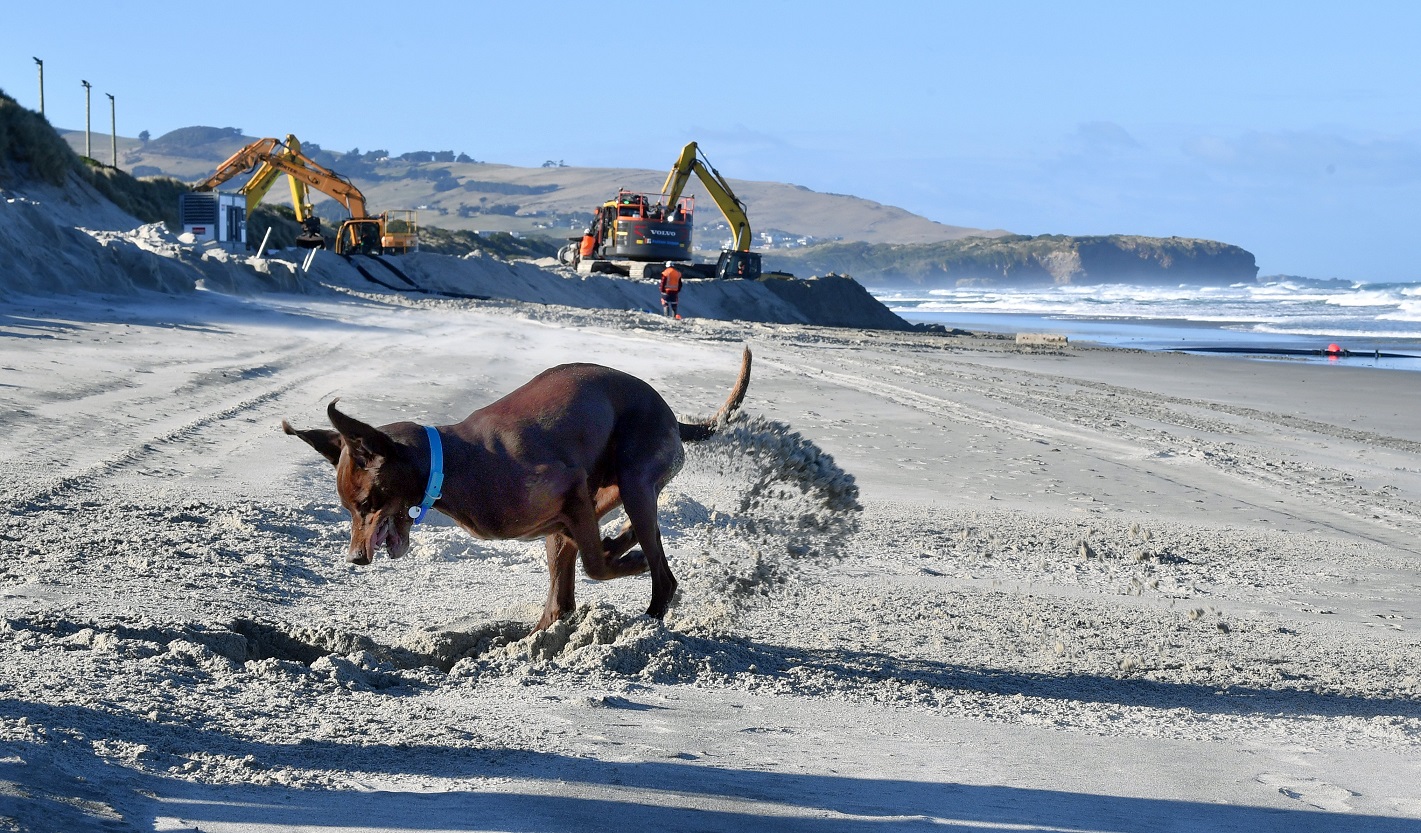

The scale of the threat posed by the historic landfill behind the beach is being revealed at the same time as a short-list of solutions is being prepared to prevent a toxic spill from the dump.
The solutions are expected to be proposed to the community in September for consideration until November, with a plan delivered to council by mid-January.
The front-runner is a nature-based solution known as dune reprofiling, which would require the landfill’s removal. The domain land above it would be replaced with gently-rolling dunes.
An investigation published today by the Otago Daily Times into the state of dune defences along the whole of Ocean Beach reveals significant risk and community concerns about the landfill and the eroding dune further west at St Clair Beach.
The plan for the landfill site is being fast-tracked by coastal scientists at the Dunedin City Council due to the spill risk. The dump contains harmful contaminants including asbestos and possibly munitions.
Options to tackle erosion along the whole of Ocean Beach, from the St Clair seawall to St Kilda Beach, are expected to be delivered to council by August next year after monitoring and modelling.
The landfill, which is topped by domain including Kettle Park, is currently only protected by a thin wall of sand that gets as narrow as 4m and could be washed away by storm surges. One storm monitored by the council on the beach in 2007 took away up to 20m of sand.
Other possible options are a buried seawall and more geobags, commonly called sand sausages, but would not eliminate landfill risk. A 500m line of the sand-filled bags, costing $2.6 million, is being installed now in front of a section of the landfill.
The geobags are a third the length, and half the cost, originally planned and a short-term fix where the dune is thinnest and risks greatest.
DCC coastal scientist Dr Raphael Krier-Mariani told the Otago Daily Times that the council was minimising use of bags as "they will have to be removed once our long-term plan is put in place".
The $2.6 million expenditure is extraordinary — a 200m line of geobags at St Clair Beach was placed in 2016 but latterly spending has been in the region of $50,000 a year.
Dr Krier-Mariani told the Otago Daily Times that costs incurred so far were low compared to a long-lasting solution requiring careful planning. The Kettle Park geobags were only "a temporary defence" that bought time.
"The cost of dealing with a clean-up if the landfill was exposed would be significant, on top of the damage to Dunedin’s environment and reputation. The sooner we act, the better, but we also need time to make sure we have the best long-term solution possible."
The price of dune reprofiling is unknown but last year Mayor Jules Radich suggested it could cost up to $50 million.
Dune reprofiling builds on the concept of "coastal set back", supported in the council’s 2022 St Clair to St Kilda Coastal Plan and defined as requiring landfill removal to create space for dunes and waves. The plan was made with community engagement demonstrating support for a nature-based approach, creating a better beach for people and wildlife.
Earlier this week, councillors raised concerns about inaction for the beach. In a council meeting, Mandy Mayhem asked whether the St Clair sand sausages were stable and Kevin Gilbert asked when there would be "spades in the sand".
Talking to the ODT, Cr Gilbert stressed the urgency, importance of planning correctly and raised the question of funding.
"It would be wonderful if the government would assist with this. I imagine it would be a joint venture between DCC and Otago Regional Council to make sure funding was found."












